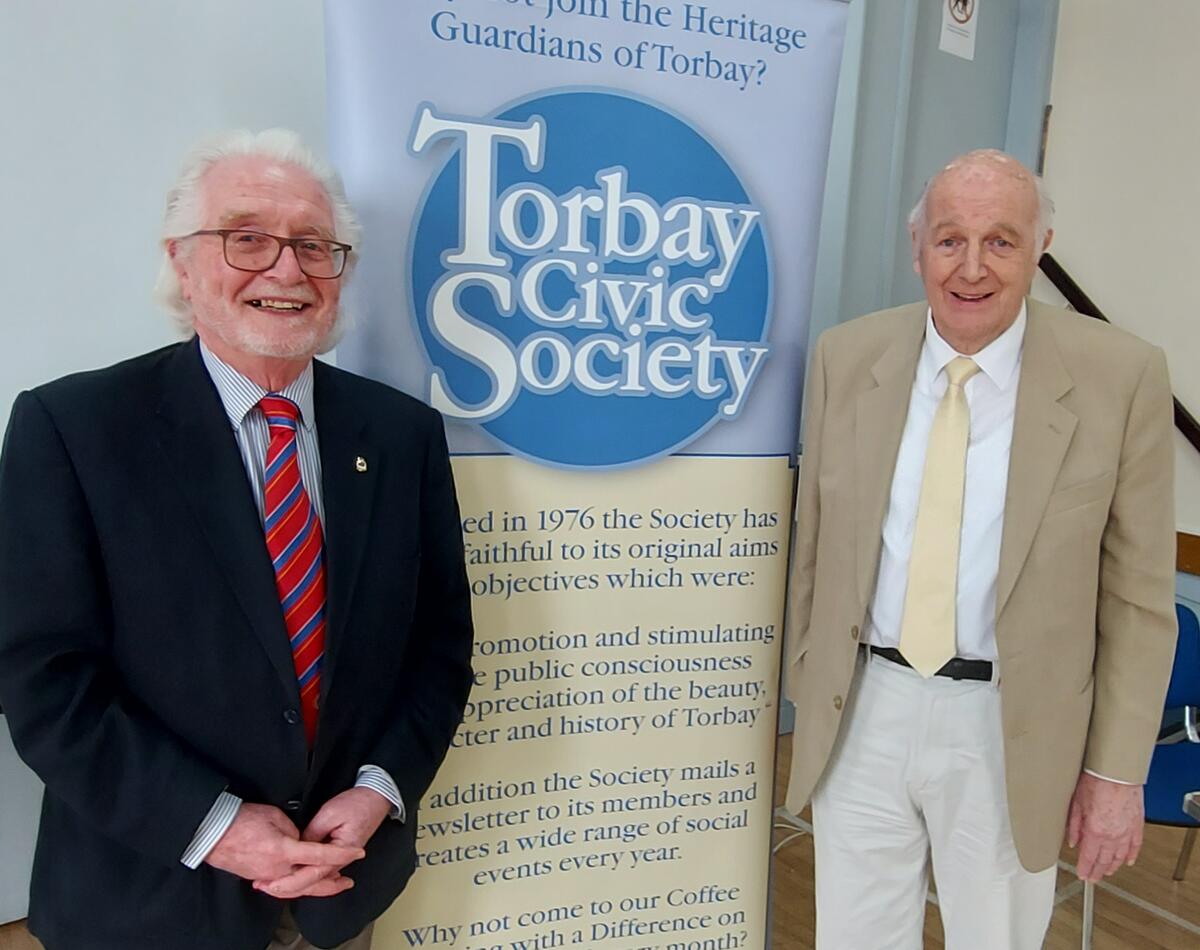Mind Boggling Bidder 19th April
Press Officer Rick Purnell writes........
Ian Handforth of the Torquay Civic Society stepped in at very short notice to talk to Teignmouth Probus Club about one of Devon’s famous sons – George Parker Bidder. Do you remember Robert Stephenson of steam locomotive fame? or Isambard Kingdom Brunel? If So why not George Bidder the mathematical genius, the brain, who undertook all the complex mathematical calculations necessary for their civil engineering projects to succeed?
At the age of 6 (1812), George, the uneducated 6th child of a stonemason from Moretonhampstead, was a phenomenal calculating boy wonder, all self-taught from the numbers on a clock face then using 100’s.
To earn money to help support the family, his father took him to local fairs and public markets to display his remarkable mental calculation ability. The sort of questions put to him: “If two ships of 83 guns each exchange at sea, and they continue in action five hours, forty-three minutes, seven seconds, each firing a broadside every 2½ minutes; how many shot will they each fire?” In 20 seconds, answered “11,391 each”. Over the next few years this ‘attraction’ developed into tours of the country, entertaining ‘society’ and was presented to Queen Charlotte for entertainment. Such was his genius that at the age of 12 he prevailed in an international competition against the renown American Zerah Colburn to be publicly acclaimed as the greatest mental mathematician in the world. His genius was spotted by Sir Henry Jardine who sponsored him for full time education & Edinburgh University in the company of Robert Stephenson who later employed him in his Railway development projects. His first job was with Ordnance Survey undertaking triangulation surveys in Devon. For extra money to support his family he worked for an Insurance Company whilst studying civil engineering. His career path led him into Railway engineering and in his 20’s supervising the Blackwall Tunnel project. He was Chief Engineer for the London to Birmingham railway, adviser to Norwegian Railways, India Railways and worked for Brunel on railways and as Engineer for the Bristol Suspension bridge and a swing bridge. He also provided all the calculations to defeat the concept of broad gauge in favour of the now ‘standard gauge’ railway system.
He also designed the Royal Victoria Docks (London).
George quickly identified that the way forward was electricity and pioneered the introduction of telegraphy to communicate between railway stations.
George became President of the Institute of Civil Engineering 1860-61, married with 12 children who in 1872 died in Dartmouth aged 72. He was buried in Stoke Gabriel where he was about to move to his new home. The only memorial to his existence is a commemorative plaque in Moretonhampstead’s public library.
More can be learned from https://www.devonperspectives.co.uk/george_parker_bidder.html
